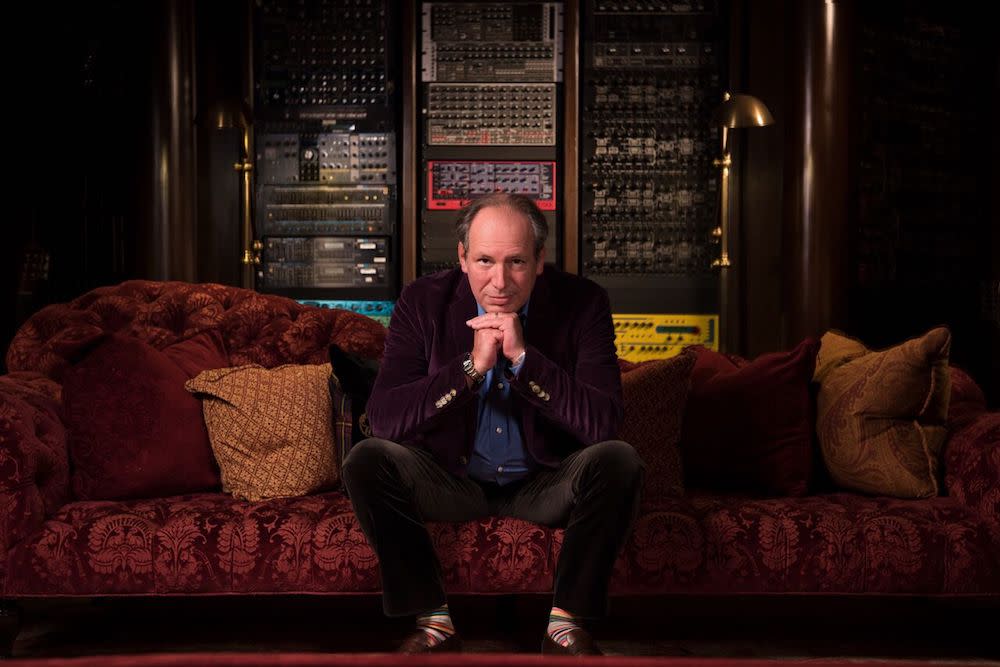Hans Zimmer’s Tips for Film Scoring: How to Compose Musical Film Scores
Written by MasterClass
Last updated: Aug 9, 2021 • 8 min read
Want to know how film composer Hans Zimmer comes up with original music and musical ideas for feature films? From Rain Man to Inception to Christopher Nolan’s Dark Knight Trilogy, Zimmer is one of the busiest composers in Hollywood. A veteran of the music business, Zimmer has composed some of the best-known film music of our time.
In 1995, Zimmer won the Academy Award for Best Original Music Score in 1995 for The Lion King. (How many times have you caught yourself humming “Circle of Life” from The Lion King?) He has since gone on to win many more Academy Awards, among countless other awards.
To date, Zimmer has composed over 150 films, making him one of the foremost experts in the world on writing movie scores.
Learn From the Best
What Is a Film Score?
A film score is an original piece of written music that accompanies the visuals of a film. Various other mediums, like video games, can also feature scores.
Hans Zimmer’s 13 Tips for Film Scoring
Film scoring is a tough job. There are a lot of elements that go into the music composition for a motion picture, from writing the music itself to orchestration to sound effects to working with the music supervisor to ensure every piece of music accurately serves the final vision of the film.
Music theory also plays a part. When writing music for a film score, Zimmer starts by thinking of a theme as a conversation or as a set of questions and answers.
To try this out yourself, find a scene you love in a film, and create an original score by setting up a question and answer motif. Think about the fact that you know how the scene ends before the audience does, and establish a question at the beginning knowing how the scene will conclude. Write a cue that highlights those questions and answer them.
That’s just one tip from Zimmer about writing movie scores. Here are 13 more, directly from the master himself.
and invite the audience on the journey into the world that your sounds help build.
best sound systems possible.
Revisions happen early in the process. During the diary process, Zimmer is figuring out his way into the score, and revising his intention as he gets more precise about the rules for his score. Take comfort in knowing that even for Zimmer, showing his music to the director is an emotionally tough experience, and he becomes fragile in the process. Show it to your music editor or a key collaborator first, and ask a very simple question: “Is it shit?”
13 Blockbuster Film Scores Composed by Hans Zimmer
- 1. 12 Years A Slave
- 2. Batman Begins
- 3. The Dark Knight
- 4. The Dark Knight Rises
- 5. Gladiator
- 6. Interstellar
- 7. Pirates of the Caribbean
- 8. Sherlock Holmes
- 9. The Da Vinci Code
- 10. The Thin Red Line
- 11. Man of Steel
- 12. The Last Samurai
- 13. Dunkirk
When it comes to composing musical themes, anything from characters to setting can serve as inspiration. Award-winning composer Hans Zimmer begins with a character’s backstory and builds from there. In Zimmer’s MasterClass, you’ll find music composing fundamentals like creating sound palettes, working with synths, and understanding tempo in relation to pacing, to create your very own memorable film scores.
Want to become a better composer? The MasterClass Annual Membership provides exclusive video lessons taught by master musicians, including Hans Zimmer, Itzhak Perlman, and more.
